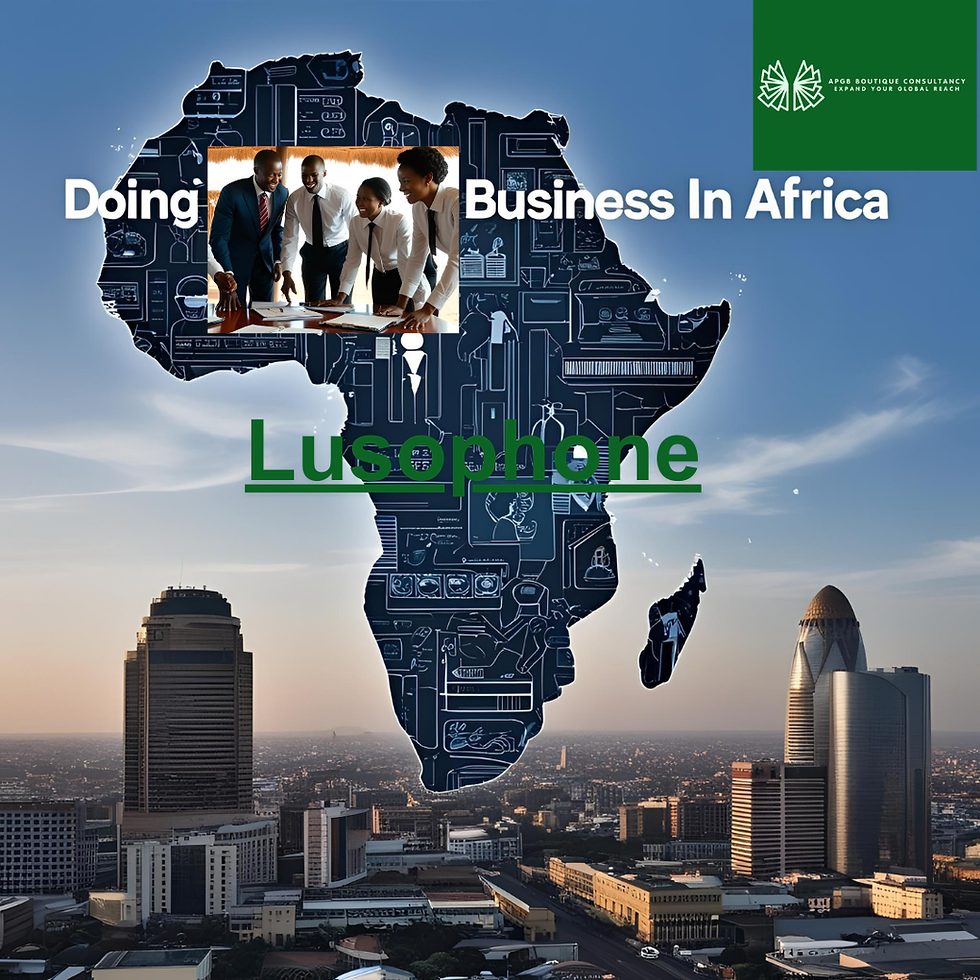The Economic Influence of Lusophone African Countries on the Broader African Economy
- Alice Santos
- Feb 24, 2025
- 2 min read
The economic performance of Lusophone African nations—Angola, Mozambique, Cape Verde, and Guinea-Bissau—offers valuable insights into the continent’s growth dynamics. While their impacts vary, these countries collectively contribute to Africa’s economic landscape, influencing trade, investment, and development strategies.
🌟 Regional Economic Drivers: Angola and Mozambique
Angola: A Shifting Economic Landscape
Angola, a major player in Southern Africa, has seen a downward revision in its growth forecast, with consequences for regional economic stability. As a resource-rich nation, its oil sector has historically driven GDP growth, but diversification efforts remain crucial to long-term resilience.
Mozambique: An Emerging Trade Powerhouse
Mozambique’s economy is gaining momentum through large-scale investments in energy and infrastructure. The country’s growing liquefied natural gas (LNG) sector and expanding exports are shaping trade patterns within the Southern African Development Community (SADC), reinforcing its role as a key economic driver in the region.
🏝️ Cape Verde: A Small Island Success
Cape Verde’s economy, driven by tourism and services, mirrors broader trends in African tourism growth. Despite its small size, Cape Verde has demonstrated remarkable resilience, with GDP per capita growth outpacing many of its African peers. This success serves as a model for other small island economies looking to capitalize on tourism, remittances, and economic diversification.
🌾 Guinea-Bissau: A Modest but Meaningful Contributor
Though smaller in economic size, Guinea-Bissau plays a vital role in diversifying West Africa’s economic landscape. With regional growth expected to rise from 3.6% in 2023 to 4.2% in 2024, Guinea-Bissau’s economic contributions support the broader Economic Community of West African States (ECOWAS) development trajectory.
Key Takeaways for Africa’s Broader Growth
Export Diversification: Strengthening economic resilience across African regions requires a broader range of exports beyond raw materials. Countries like Mozambique are demonstrating the benefits of such diversification.
Remittances’ Role in Economic Stability: Remittances play a crucial role in several Lusophone nations, with Cape Verde’s remittance inflows exceeding 9% of GDP, compared to Angola’s 0.1%. This highlights the economic lifeline that diaspora communities provide.
Policy Lessons for Sustainable Growth: Cape Verde and Mozambique showcase the advantages of trade diversification, governance improvements, and macroeconomic stability, offering valuable policy lessons for other African nations.
As Africa aims for 4.0% growth in 2024-25, the experiences of Lusophone countries provide a blueprint for resilience and sustainable development. Their successes and challenges hold critical lessons for the entire continent.
💬 What are your thoughts on how Lusophone Africa can further contribute to the continent’s growth?
If we are not yet connected please follow us on LinkedIn



Comments